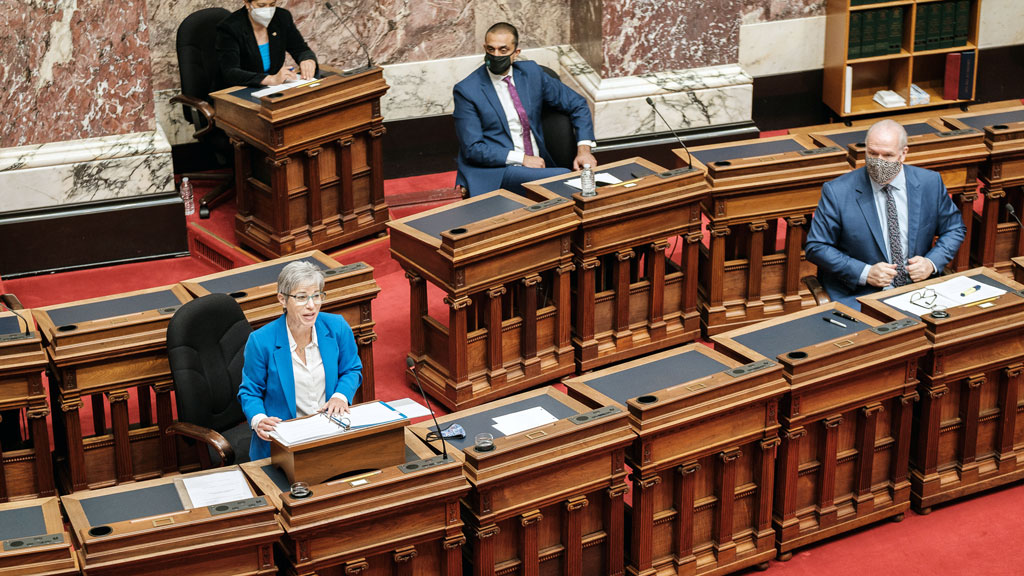On the heels of the federal government’s budget, B.C. released its own budget, receiving varying degrees of support from the province’s construction industry.
The BC Construction Association (BCCA) felt more attention should have been paid to the construction sector. It noted the province only committed to $3.5 billion in new spending on infrastructure over the next three years. The association noted the province’s plan is not accounting for two major obstacles to the real market impact of construction spending: skyrocketing construction costs and risk premiums.
“The drywall market in North America is essentially sold out, lumber and steel costs have doubled,” said BCCA officials in a release. “All this means taxpayer dollars won’t go as far as they did pre-COVID. In fact, a case can be made to show that the $3.8 billion budget increase has already been spent on the increased costs of supply – and then some.”
The group also noted risk premiums could be controlled if B.C. were to implement prompt payment legislation to ensure everyone on a project gets what they are owed.
While the association praised the province for continuing programs like the increased child care spaces, employment incentive tax credits, PST exemptions and more, it saw trades training funding lacking.
“We would have liked to see the emphasis on technology and health care jobs complemented by a re-invigorated commitment to the industry that has helped to keep B.C.’s economy going,” wrote the group. “The construction industry has proven itself to be resilient and adaptable in this time of great challenge. We have been here for British Columbia. But our contractors are struggling with cash flow challenges, increased costs, late payments and lack of skilled workers. If the budget does not remember us, we hope the attorney general will so that we can at least get paid on time for the work we do.”
We need to get to yes on some of the most important infrastructure needs in B.C.,
— Chris Gardner
Independent Contractors and Businesses Association
The BC Building Trades praised the budget’s three-year, $26.5 billion capital spending commitment as well as efforts to train workers.
“These commitments directly and positively impact the thousands and thousands of construction workers who have dedicated their careers to building our province,” said Brynn Bourke, interim executive director of the BC Building Trades. “We are encouraged that even in a pandemic year, our government has delivered a budget that is prudent, optimistic and compassionate.”
Bourke praised investments in skills training to support unemployed and under-employed people entering high-demand sectors such as construction.
“We have a shortage of skilled trades workers in B.C., and commitments like this that place more people in family-supporting, life-long careers will help manage that shortage.”
Bourke noted the Building Trades were pleased to see funding for projects like the new Surrey hospital and cancer centre, urgent and primary care centres across B.C. and the Cowichan District Hospital replacement.
The Independent Contractors and Businesses Association (ICBA) felt some important projects were missing from the budget, including a replacement for the Taylor Bridge, North Shore rapid transit, the Massey Tunnel replacement, the Brunette Highway 1 interchange and the Quesnel Bypass.
“We need to get to yes on some of the most important infrastructure needs in B.C., projects that are key to the provincial economy,” said Chris Gardner, president of the ICBA. “For example, the Taylor Bridge is 60 years old, in rapid decline, and a vital connection between the north and south Peace River regions. At a time when natural gas royalties from that area are booming and providing an important boost to the provincial economy, now is the time to reinvest in the region.”
Gardner was also disappointed with funding for trades training, calling it the biggest issue facing the construction industry. He also felt it was a missed opportunity to scrap the province’s Community Benefits Agreement (CBA) policy, something he believes is further preventing infrastructure building and workforce training.
“When you cut 85 per cent of construction workers out of taxpayer-funded infrastructure projects, as the province has done under its CBA policy, construction gets a lot more expensive and workers lose opportunities,” said Gardner. “The government could have chosen to ensure that every construction worker and every construction contractor has an equal and fair shot at government funded work. Instead, CBAs are artificially driving up construction costs and delivering work to one small segment of the workforce.”
Metro Vancouver, a federation of 21 B.C. municipalities, praised commitments to build affordable housing and looked forward to cost sharing opportunities with government to build critical projects.
“The past year has threatened public health, strained local government services and restricted economic activity,” said Sav Dhaliwal, chair of Metro Vancouver’s Board of Directors. “The pandemic has exacerbated profound vulnerabilities in our system that must be addressed, by supporting families who are struggling, growing our economy, protecting the environment and fighting climate change.”
The Pembina Institute, a non-profit think-tank, noted the budget made small steps towards addressing climate change issues, but not enough to reach its goals.
“We have the tremendous task in B.C. of switching more than 80,000 heated homes and apartment buildings each year from natural gas to high efficiency heat pumps to meet B.C.’s target to reduce emissions from the buildings and communities sector by about 60 per cent,” explained Karen Tam Wu, Pembina’s B.C. director. “Yet the amount allocated in Budget 2021 to reduce carbon pollution from homes and buildings is not proportional to what is needed to meet this target. The $12 million for energy upgrades to schools and $11 million announced to support local governments to plan for compact, efficient communities won’t go far in delivering the 60 per cent reduction target.”
Wu did praise support for remote communities to transition from diesel to clean electricity.
“Communities want to determine their own energy future and play a role in the clean energy economy,” said Wu. “Energy independence is particularly important for remote Indigenous communities and efforts by governments toward this goal are critical to reconciliation.”
Follow the author on Twitter @RussellReports.











Recent Comments